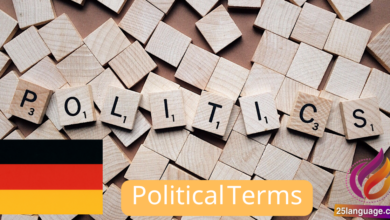Past Perfect Continuous Tense in German

Past Perfect Continuous Tense in German.The Past Perfect Continuous Tense is one of those grammatical structures in English that may initially seem complex but opens the door to rich and precise language expressions when understood. This tense is utilized to indicate an action or condition that began in the past and continued up to a specific point in time, also in the past.

Explanation about Past Perfect Continuous Tense in German
The Past Perfect Continuous Tense, or “das Plusquamperfekt im Verlaufsform” as it might be referred to in German, does not have a direct equivalent in the German language. In English, this tense is used to describe actions that began in the past and continued up to another point in the past. It’s formed with “had been” plus the present participle (the “-ing” form) of the main verb. For example: “I had been reading for two hours when she called.”
To convey a similar meaning in German, one typically employs other tenses or adverbial phrases. For instance, to translate “I had been reading for two hours when she called,” one might say: “Ich hatte schon zwei Stunden gelesen, als sie anrief.” Here, the “Plusquamperfekt” tense (hatte gelesen) is used in combination with an adverb (schon) and a time expression (zwei Stunden) to convey a sense similar to the Past Perfect Continuous in English.
Another way might be to use the “Imperfekt” or simple past tense with additional information to set the context: “Ich las schon seit zwei Stunden, als sie anrief.”
Examples for using Past Perfect Continuous Tense in German
| English (Past Perfect Continuous) | German Equivalent | Explanation |
|---|---|---|
| I had been reading for two hours. | Ich hatte schon zwei Stunden gelesen. | Using Plusquamperfekt + “schon” + time expression |
| She had been working there since 2015. | Sie hatte dort schon seit 2015 gearbeitet. | Using Plusquamperfekt + “schon seit” to indicate duration |
| They had been playing football. | Sie hatten schon Fußball gespielt. | Using Plusquamperfekt + “schon” |
| We had been living in Berlin. | Wir hatten schon in Berlin gewohnt. | Using Plusquamperfekt + “schon” |
| You had been studying German. | Du hattest schon Deutsch gelernt. | Using Plusquamperfekt + “schon” |
Vocabulary about Past Perfect Continuous Tense in German
| English Vocabulary | German Vocabulary | Function or Usage |
|---|---|---|
| had been | hatte … gehabt | Auxiliary verb used in forming Plusquamperfekt |
| since | seit | Used to indicate the starting point of an action |
| for | für | Used to indicate the duration of an action |
| already | schon | Adverb used to emphasize that something has occurred |
| still | immer noch | Indicates that an action is still continuing |
| before | bevor | Indicates an action that happened prior to another |
| while | während | Used to indicate simultaneous actions |
| until | bis | Used to indicate the endpoint of an action |
In conclusion, the Past Perfect Continuous Tense serves as an intricate yet valuable aspect of English grammar that enriches our understanding of temporal relationships. Despite its apparent complexity, mastering this tense offers us the means to articulate events and situations that began and persisted in the past in a nuanced and meaningful manner.



























